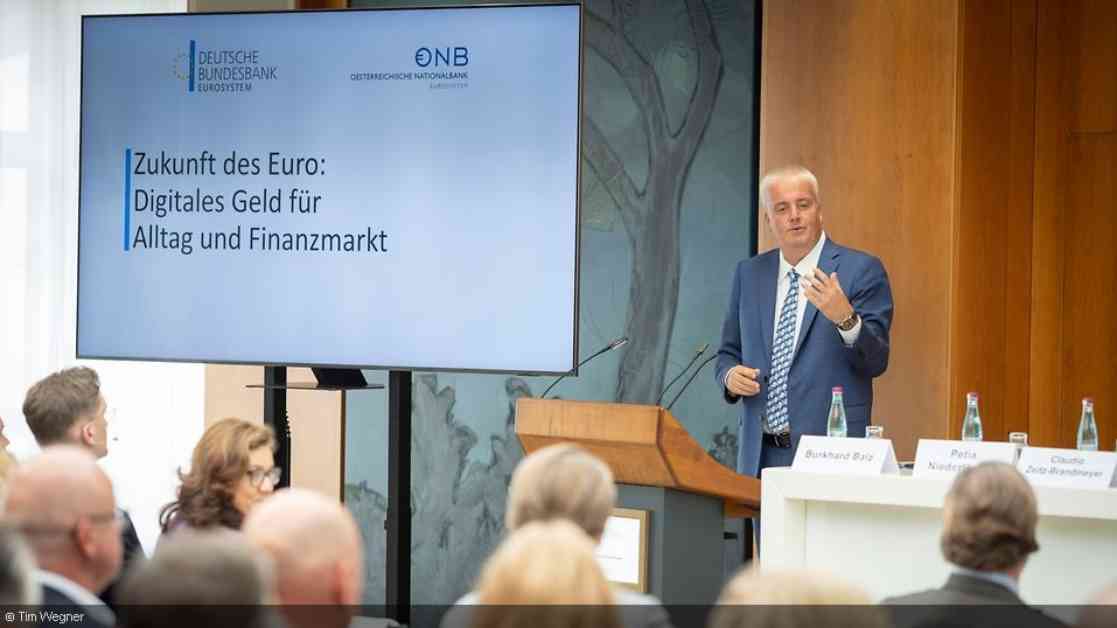The Digital Euro: A Game-Changer in Everyday Life and Financial Markets
The future of the euro is evolving rapidly with the introduction of digital currency, a topic that was recently discussed at a joint Bundesbank-Oesterreichische Nationalbank conference. Burkhard Balz, a member of the Bundesbank Executive Board, emphasized that the digital euro is not meant to replace current products but rather to complement them. The goal is to provide the public with access to central bank money in a future digital world.
During the conference, experts from the financial industry, trade, and consumer protection sectors delved into the potential impact of a central bank digital currency (CBDC) on everyday payments and financial markets. Petia Niederländer, Director of Payments, Risk Monitoring, and Financial Literacy at the Oesterreichische Nationalbank, and Alexandra Hachmeister, head of the Bundesbank’s Directorate General Digital Euro, led panels discussing the implications of the digital euro.
The Digital Euro in Everyday Transactions
One of the key points of discussion was how the digital euro should be designed to provide added value for the public, retailers, and financial service providers. Experts highlighted the importance of seamless integration of the digital euro into existing payment systems to ensure consumer protection. Representatives from the banking industry stressed that the success of a digital euro hinges on its ability to operate within current infrastructure without the need for additional systems.
Petia Niederländer emphasized the shared responsibility of central banks and the private sector in maintaining consumer confidence in payment infrastructures. She stated, “We must jointly ensure that consumers’ confidence in payment infrastructures is maintained, whether this concerns digital payments, cash, or new digital currencies such as the digital euro.” The role of retailers and banks in fostering acceptance of the digital euro was also discussed as a crucial factor in its adoption.
Digital Currency in Financial Markets
Another significant aspect explored at the conference was the potential of central bank digital currency (CBDC) in the wholesale sector, particularly in securities settlement. Participants discussed how CBDC could revolutionize securities settlement, especially with the integration of distributed ledger technology (DLT). The experts unanimously supported the trigger solution developed by the Bundesbank, currently in the testing phase, as a means to digitize the issuance of securities efficiently and cost-effectively.
The Eurosystem is actively exploring avenues to leverage CBDC in the securities sector, with a focus on streamlining processes and reducing operational costs. The use of digital currency in securities settlement has the potential to enhance efficiency and transparency in the financial markets, ultimately benefiting both market participants and investors.
As the digital euro continues to gain momentum, it is essential for stakeholders to collaborate and innovate to ensure a smooth transition to a digital payment landscape. The future of the euro lies in embracing technological advancements and adapting to the changing needs of consumers and businesses. The digital euro is poised to reshape everyday transactions and financial markets, paving the way for a more efficient and inclusive monetary system.
